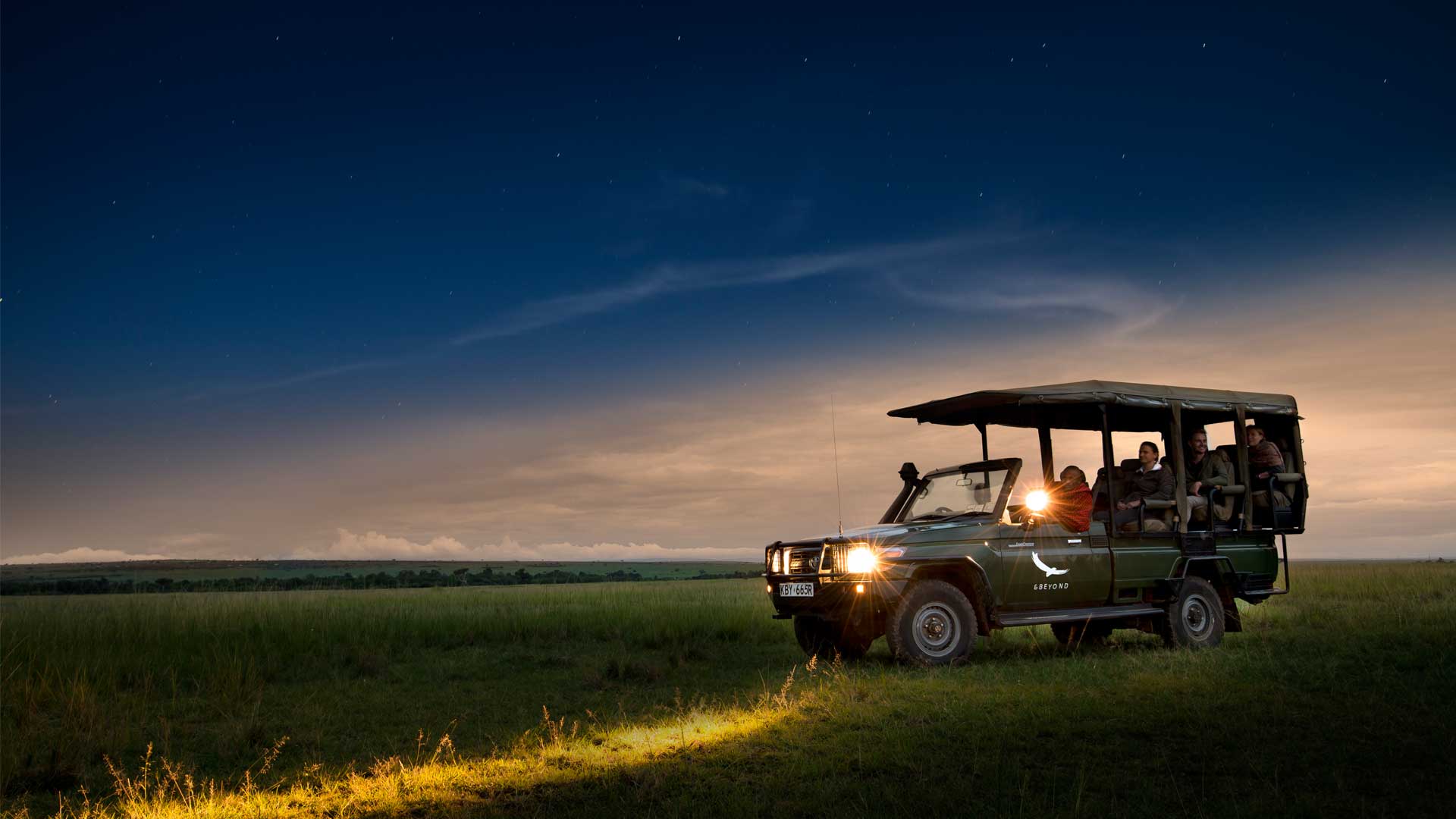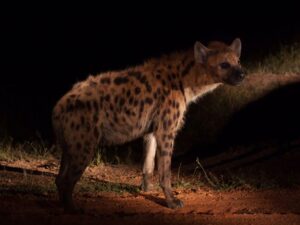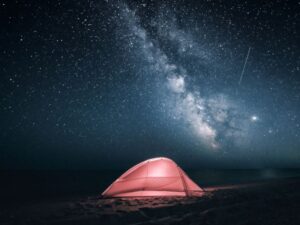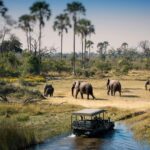While many travelers flock to this magnificent country for daytime safaris, night safaris in South Africa offer an entirely different and equally thrilling experience. Imagine the excitement of exploring the wilderness under a canopy of stars and witnessing nighttime wildlife behaving in ways rarely seen during the day. This guide will delve into the magic of South African night safaris, highlighting everything you need to know to make the most of this extraordinary adventure.
What Are Night Safaris in South Africa? A Guide to Nocturnal Wildlife Viewing
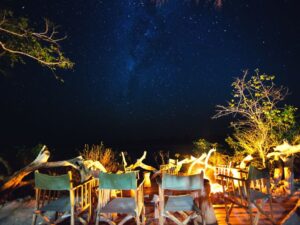
A night safari is a guided wildlife tour that takes place after sunset, allowing visitors to observe nocturnal animals in their natural habitats. These safaris are designed to give a unique perspective on nighttime wildlife behavior and the nocturnal ecosystem. Equipped with spotlights and expert guides, participants can see and learn about animals that are typically hidden during daylight hours.
Why Choose Night Safaris in South Africa? The Benefits of Nocturnal Wildlife Exploration
Choosing a night safari offers several distinct advantages. For one, many animals are more active at night, providing opportunities to see predators hunting, nocturnal species foraging, and other fascinating behaviors. Additionally, the African bush takes on a completely different character after dark, with new sounds and the shimmering glow of eyes in the night. Moreover, night safaris tend to have fewer participants, making the experience more intimate and personal.
Best Locations for Night Safaris and Wildlife Viewing in South Africa
South Africa boasts numerous national parks and private reserves that offer exceptional night safari experiences. Some of the best locations include:
-
Kruger National Park: As one of Africa’s largest game reserves, Kruger National Park is a prime destination for night safaris. Here, you can expect to see a variety of nocturnal animals, including leopards, lions, and hyenas.
-
Sabi Sands Game Reserve: Adjacent to Kruger National Park, Sabi Sands Game Reserve is known for its luxurious lodges and high density of big game. Night safaris in Sabi Sands are particularly rewarding due to the abundance of wildlife.
-
Addo Elephant National Park: Located in the Eastern Cape, Addo Elephant National Park offers a unique opportunity to see nocturnal creatures like aardvarks, porcupines, and, of course, elephants during a night safari.
-
Madikwe Game Reserve: Close to the Botswana border, Madikwe Game Reserve provides a malaria-free safari experience. In addition, its night safari tours are famous for sightings of wild dogs, lions, and other predators.
What to Expect During Your Night Safari in South Africa
How to Prepare for an Incredible Night Safari Adventure
Most night safaris start just after sunset. Typically, drivers pick up participants from their lodges or designated meeting points. Guides then provide briefings on what to expect and the safety protocols to follow during the night safari adventure.
The Thrills of Observing Wildlife During Night Safaris
Equipped with powerful spotlights, guides expertly navigate the terrain, illuminating the eyes of animals in the dark. The quiet and darkness add to the sense of adventure, making every sighting more thrilling. Furthermore, the expertise of the guides ensures that participants learn about the behavior of animals and the environment in a safe and educational manner.
Common Wildlife Encounters During Your Night Safari
While no two night safaris are the same, common nocturnal animals you might encounter include:
-
Lions: Often more active at night, lions can be seen hunting or patrolling their territory.
-
Leopards: These elusive cats are more frequently spotted after dark.
-
Hyenas: Known for their eerie calls, hyenas are often seen scavenging or hunting in packs.
-
Bush Babies: These small primates are highly active at night and can be spotted leaping through the trees.
-
Owls: Various species of owls can be heard and sometimes seen hunting for prey.
Essential Tips for Preparing for Your Night Safari in South Africa
What to Wear on Your Night Safari Adventure
Dress warmly, as temperatures can drop significantly after dark. Layers are advisable, along with comfortable, closed-toe shoes for night safaris.
Must-Have Gear for Your Night Safari in South Africa
To ensure a successful experience, bring the following:
-
Binoculars: To get a closer look at distant animals.
-
Camera: With a good low-light capability to capture the experience.
-
Insect Repellent: To ward off mosquitoes and other insects during your night safari tour.
-
Water and Snacks: To stay hydrated and energized during your night safari adventure.
Night Safari Safety Tips: How to Stay Safe During Your Nocturnal Wildlife Adventure
Listen to Your Guide During Night Safaris
Always follow the guide’s instructions to ensure a safe and enjoyable experience. They have extensive knowledge of the animals and the terrain, ensuring you remain safe during your night safari journey.
Stay Seated and Quiet on Your Night Safari
Movement can disturb the animals and may be dangerous. Therefore, remain seated and avoid sudden movements. Speak in low tones and minimize unnecessary noise to ensure you don’t disturb wildlife during your night safari.
Photography Tips for Capturing the Magic of Your Night Safari
Taking photos during a night safari can be challenging due to low light conditions. However, there are several ways to enhance your chances of capturing stunning images:
-
Use a Fast Lens: A lens with a wide aperture (f/2.8 or lower) allows more light to enter, making it easier to shoot in low light.
-
Increase ISO: Raising your camera’s ISO can help capture more light, but be aware of potential noise in the images.
-
Stabilize Your Camera: Use a monopod or rest your camera on a stable surface to avoid blurry shots.
-
Focus Manually: Autofocus can struggle in low light, so switching to manual focus might yield better results.
When Is the Best Time to Experience a Night Safari in South Africa?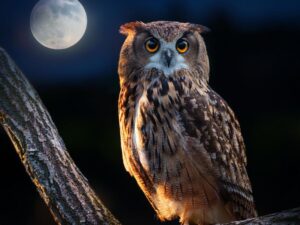
Night safaris are available year-round, but certain seasons offer an enhanced experience. For example, during the dry season (May to October), animals are easier to spot as there is less foliage. The cooler temperatures also make for a more comfortable outing. Full moon safaris are another excellent time for a night safari, as the additional moonlight can make it easier to see animals and navigate the terrain.
Ethical Practices for Responsible Night Safaris
Respect Wildlife During Your Night Safari in South Africa
It’s essential to respect the animals and their habitat. Avoid using flash photography, as it can startle and distress the wildlife during your night safari tour.
Support Conservation Efforts While on Your Night Safari
Choose safari operators that support wildlife conservation efforts and adhere to ethical wildlife viewing practices. Your participation can help fund important conservation work, contributing directly to the protection of South Africa’s precious wildlife.
Benefits of Night Safaris for Wildlife Conservation and Community Support
Night safaris not only provide unforgettable experiences but also contribute to wildlife conservation. The revenue generated supports anti-poaching efforts, habitat preservation, and community projects. By participating in a night safari, you’re directly contributing to the protection of South Africa’s precious wildlife.
Conclusion: Why Night Safaris in South Africa Should Be Part of Your Travel Adventure
Embarking on a night safari in South Africa is an extraordinary way to experience the country’s rich biodiversity from a unique perspective. Whether you’re an avid wildlife enthusiast or a curious traveler, a South African night safari offers unparalleled opportunities to observe nocturnal animals in their natural habitats. With proper preparation, respect for wildlife, and a sense of adventure, your night safari can become one of the most memorable highlights of your journey through this beautiful country. So, gear up for an adventure under the African stars and discover the magic that unfolds after dark!

